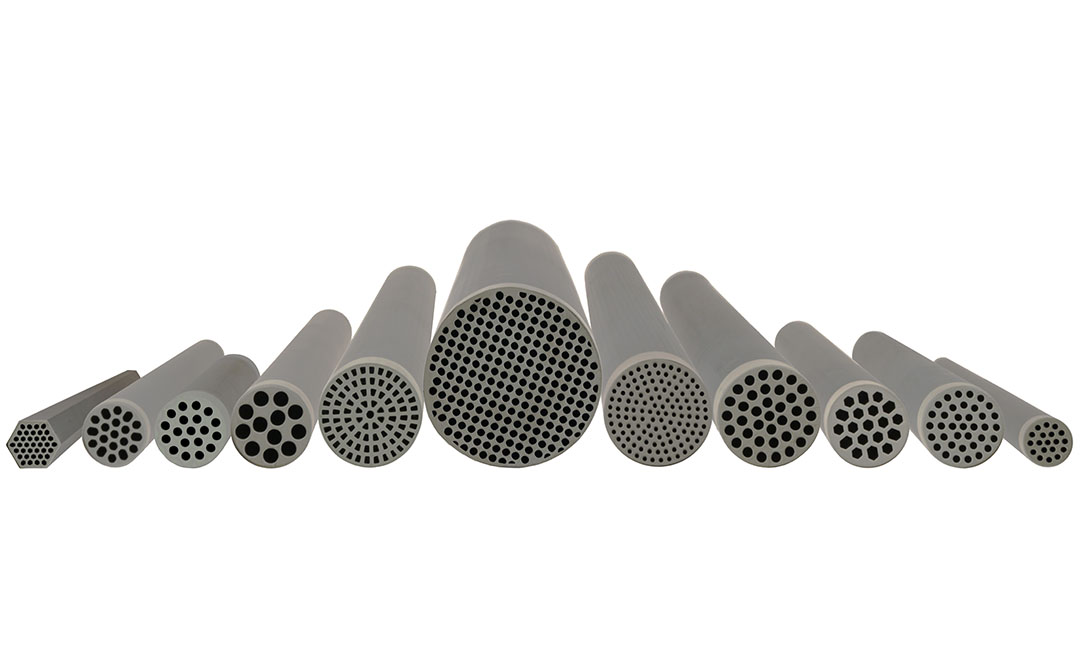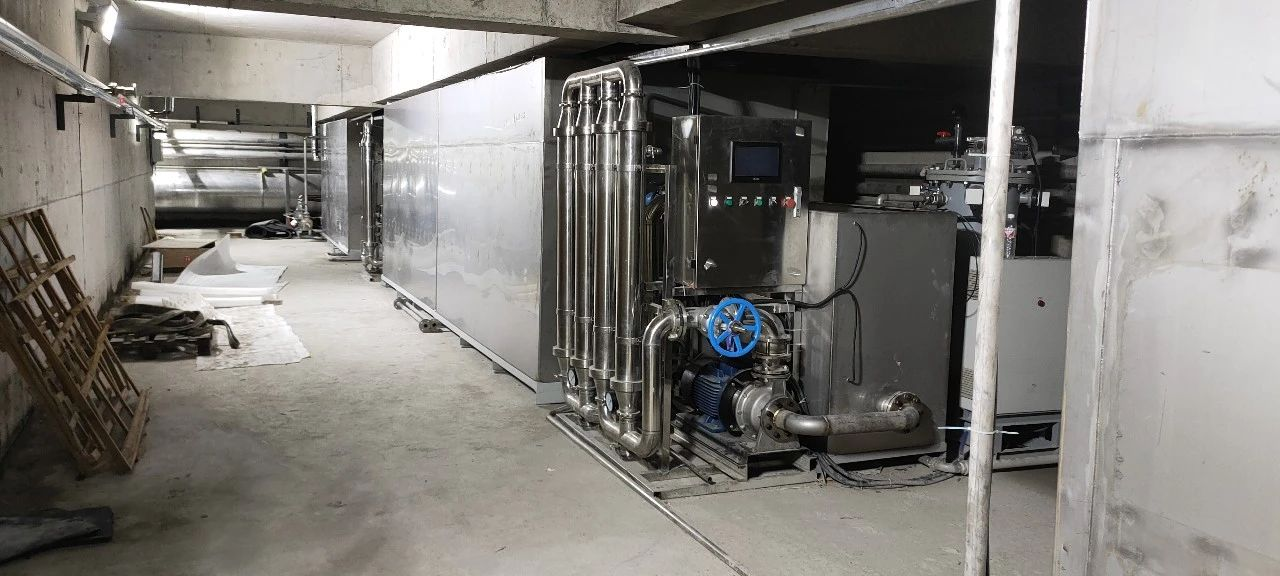Superior Performance in Harsh Environments
Silicon carbide (SiC) membranes have emerged as a game-changer in the field of desalination due to their superior performance in harsh environments. These membranes offer a range of benefits that make them ideal for modern desalination systems, where efficiency, durability, and cost-effectiveness are key considerations.

One of the primary reasons why SiC membranes are perfect for modern desalination systems is their exceptional chemical and thermal stability. Unlike traditional polymer membranes, SiC membranes can withstand high temperatures and aggressive chemicals without degrading. This makes them highly resistant to fouling and allows for efficient operation even in challenging conditions.
In addition to their stability, SiC membranes also offer excellent mechanical strength, making them highly durable and long-lasting. This means that they require less frequent replacement compared to other types of membranes, resulting in lower maintenance costs and increased operational efficiency. The robust nature of SiC membranes also makes them ideal for use in high-pressure applications, where they can withstand the rigors of desalination processes without compromising performance.
Furthermore, SiC membranes have a high permeability and selectivity, allowing for efficient separation of salts and other contaminants from water. This results in higher water recovery rates and lower energy consumption, making SiC membranes a cost-effective solution for desalination plants. The high flux rates of SiC membranes also contribute to their efficiency, allowing for faster processing of water and increased productivity.
Another key advantage of SiC membranes is their resistance to fouling, which is a common issue in desalination systems. The smooth surface of SiC membranes prevents the build-up of contaminants and allows for easy cleaning, ensuring consistent performance over time. This not only reduces maintenance requirements but also prolongs the lifespan of the membranes, resulting in long-term cost savings for desalination plants.
SiC membranes are also environmentally friendly, as they are made from a non-toxic material that can be recycled at the end of its lifespan. This makes them a sustainable choice for desalination systems, aligning with the growing focus on eco-friendly solutions in the water treatment industry. By choosing SiC membranes, desalination plants can reduce their environmental impact and contribute to a more sustainable future.
In conclusion, SiC membranes are perfect for modern desalination systems due to their superior performance in harsh environments. Their exceptional stability, durability, efficiency, and environmental friendliness make them an ideal choice for desalination plants looking to optimize their operations and reduce costs. With the increasing demand for clean water worldwide, SiC membranes offer a reliable and cost-effective solution for meeting the challenges of water scarcity and ensuring access to safe drinking water for all.
Enhanced Durability and Longevity
Desalination is a critical process for providing clean drinking water in regions where freshwater resources are scarce. As the demand for fresh water continues to rise, the need for efficient and reliable desalination systems has become more important than ever. One key component of modern desalination systems is the membrane, which plays a crucial role in separating salt and other impurities from water. Silicon carbide (SiC) membranes have emerged as a popular choice for desalination applications due to their enhanced durability and longevity.
SiC membranes are made from a material known for its exceptional strength and resistance to corrosion. This makes them ideal for use in desalination systems, where they are exposed to harsh conditions such as high temperatures, high pressures, and corrosive chemicals. Unlike traditional polymer membranes, which can degrade over time and require frequent replacement, SiC membranes are designed to withstand these challenging environments and maintain their performance over an extended period.
One of the key advantages of SiC membranes is their superior mechanical strength. This allows them to withstand the high pressures that are typically encountered in desalination systems without experiencing damage or failure. As a result, SiC membranes have a longer service life compared to other types of membranes, reducing the need for frequent replacements and lowering maintenance costs. This enhanced durability makes SiC membranes a cost-effective choice for desalination plants looking to maximize their operational efficiency and minimize downtime.
In addition to their mechanical strength, SiC membranes also offer excellent chemical resistance. This is particularly important in desalination systems, where the presence of salt and other contaminants can cause corrosion and degradation of the membrane material. SiC membranes are highly resistant to corrosion, making them well-suited for use in seawater desalination plants where salt concentrations are high. Their ability to withstand exposure to corrosive chemicals ensures that SiC membranes maintain their performance and efficiency over time, providing a reliable solution for producing clean drinking water.
Furthermore, SiC membranes are known for their thermal stability, allowing them to operate effectively at high temperatures without compromising their performance. This is a critical factor in desalination systems, where the water is often heated to facilitate the separation of salt from the water. SiC membranes can withstand these elevated temperatures without experiencing degradation, ensuring that the desalination process remains efficient and consistent.
Overall, the enhanced durability and longevity of SiC membranes make them an ideal choice for modern desalination systems. Their superior mechanical strength, chemical resistance, and thermal stability set them apart from other membrane materials, providing a reliable and cost-effective solution for producing clean drinking water. By choosing SiC membranes for desalination plants, operators can ensure that their systems operate efficiently and effectively, meeting the growing demand for fresh water in a sustainable and environmentally friendly manner.
Improved Energy Efficiency and Cost Savings
Desalination is a critical process for providing clean drinking water in regions where freshwater resources are scarce. As the demand for fresh water continues to rise, the need for efficient and cost-effective desalination technologies becomes increasingly important. One promising solution that has gained traction in recent years is the use of silicon carbide (SiC) membranes in desalination systems.
SiC membranes offer several advantages over traditional desalination membranes, making them an ideal choice for modern desalination systems. One of the key benefits of SiC membranes is their improved energy efficiency. Compared to conventional polymer membranes, SiC membranes have a higher permeability, allowing water to pass through more easily. This means that less energy is required to push water through the membrane, resulting in lower operating costs for desalination plants.

In addition to their energy efficiency, SiC membranes also offer significant cost savings over the long term. While the initial cost of SiC membranes may be higher than traditional membranes, their durability and resistance to fouling make them a cost-effective investment in the long run. SiC membranes have a longer lifespan than polymer membranes, reducing the need for frequent replacements and maintenance. This not only saves money on replacement costs but also reduces downtime for desalination plants, increasing overall productivity.
Furthermore, SiC membranes are highly resistant to fouling, a common problem in desalination systems that can decrease efficiency and increase operating costs. Fouling occurs when contaminants in the feed water accumulate on the surface of the membrane, reducing its effectiveness. SiC membranes have a smooth surface that is less prone to fouling, allowing for continuous operation without the need for frequent cleaning. This not only improves the efficiency of the desalination process but also reduces the amount of chemicals and energy required for cleaning, further lowering operating costs.
Another advantage of SiC membranes is their ability to operate at high temperatures and pressures, making them suitable for a wide range of desalination applications. SiC membranes can withstand temperatures up to 800°C and pressures up to 30 bar, making them ideal for use in thermal desalination processes such as multi-effect distillation and solar desalination. Their high temperature and pressure tolerance also make SiC membranes resistant to chemical degradation, ensuring long-term performance in harsh operating conditions.
Overall, SiC membranes offer a combination of improved energy efficiency, cost savings, durability, and resistance to fouling that make them an ideal choice for modern desalination systems. By investing in SiC membranes, desalination plants can reduce operating costs, increase productivity, and provide clean drinking water to communities in need. As the demand for fresh water continues to grow, SiC membranes are poised to play a crucial role in meeting the world’s water needs in a sustainable and cost-effective manner.

